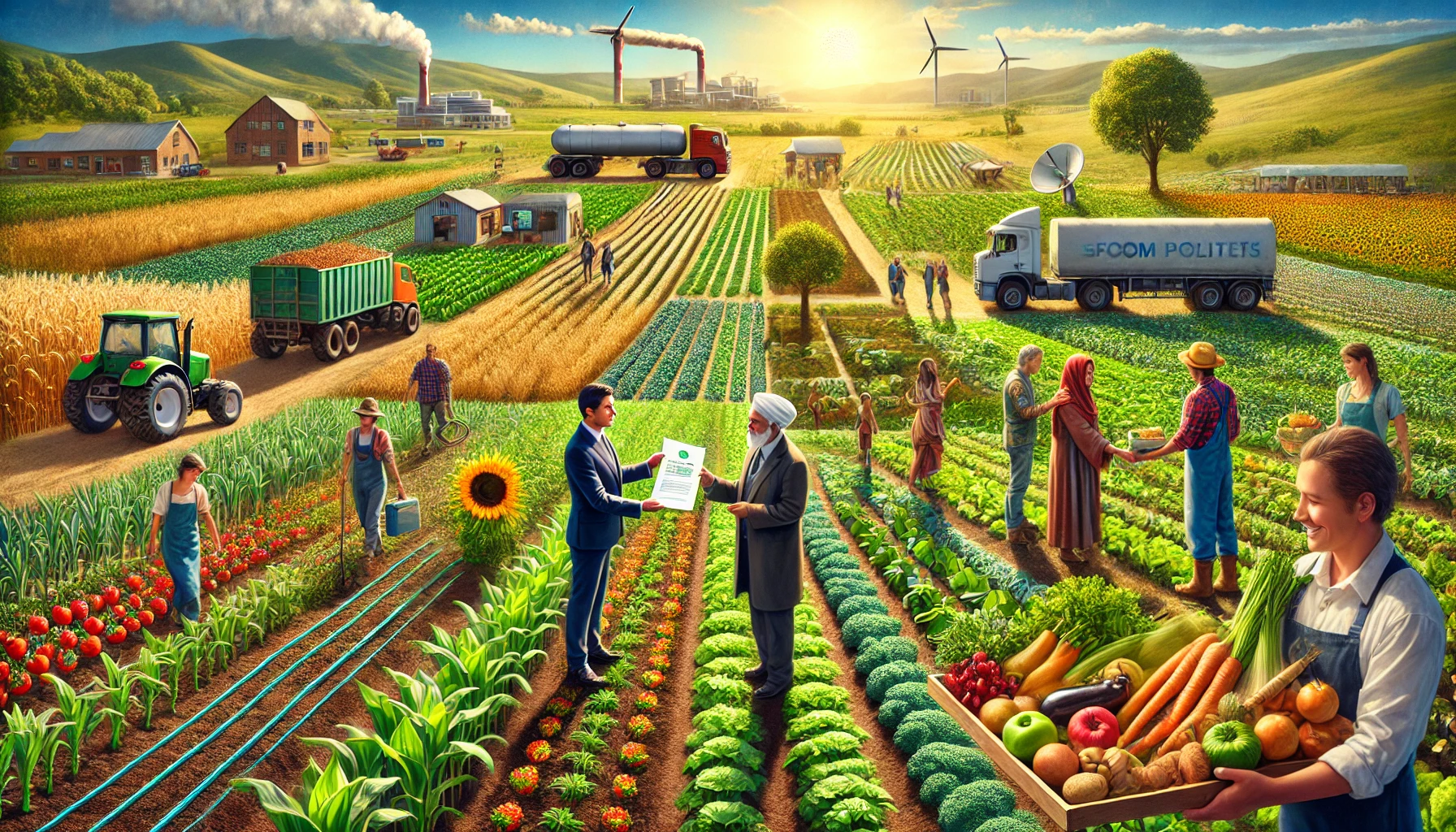AU-EU Conference: IFAD Backs Bold Push for Stronger Africa-EU Agri-Food Ties
“The food systems of Europe and Africa are deeply interlinked. Our futures are connected—economically, environmentally, and socially,” said Lario.

At a time when food insecurity, geopolitical tensions, and the accelerating impacts of climate change threaten global stability, the 6th African Union-European Union Agriculture Ministerial Conference brought together agriculture ministers from both continents in Rome to chart a path toward more sustainable, resilient, and equitable agri-food systems. Speaking at the event, Alvaro Lario, President of the International Fund for Agricultural Development (IFAD), underscored the vital role of cross-continental collaboration and IFAD’s commitment to deepening Africa-EU agri-food cooperation.
“The food systems of Europe and Africa are deeply interlinked. Our futures are connected—economically, environmentally, and socially,” said Lario. “IFAD is ready to act as a bridge—to connect resources, institutions, and ideas from both sides of the Mediterranean.”
Uniting for Transformation: A Shared Agri-Food Vision
Lario emphasized the urgency of transforming African agriculture into a force for sustainable and inclusive growth, noting that the continent’s 33–50 million smallholder farms support the livelihoods of hundreds of millions. Despite persistent hunger—with 1 in 5 Africans experiencing food insecurity—Africa’s agri-food sector has vast untapped potential.
The African Continental Free Trade Agreement (AfCFTA) could push agricultural growth toward US$1 trillion in agribusiness value by 2030, IFAD highlighted. Greater investment in rural infrastructure, small agribusinesses, and farmer training can enhance yields, expand markets, create jobs for youth, and contribute to healthier, more resilient food systems.
The conference also recognized that domestic food security challenges are rising not just in Africa but also in Europe. The European Commission recently ranked food security among its top seven strategic priorities, launching a new Vision for Agriculture and Food. On the African side, the African Union rolled out its Kampala Comprehensive African Agricultural Development Programme (CAADP) and Action Plan 2026–2035, targeting food security, productivity, and rural poverty reduction.
IFAD-EU Deal: €26 Million Boost for Farmer Organizations in Africa
Demonstrating the strength of the AU-EU-IFAD partnership, IFAD and the European Union signed a new €26 million agreement during the conference to support Farmers’ Organizations (FOs) in Africa. The investment is part of the new FO4IMPACT programme, designed to improve farmers’ market access and integrate smallholders into regional agricultural value chains.
FO4IMPACT expands upon the earlier Farmers’ Organizations for Africa, Caribbean, and Pacific (FO4ACP) programme, which, between 2019 and 2025, helped strengthen the capacities of farmer groups, expanded access to credit and inputs, and gave farmers a voice in national and regional policymaking.
FO4 Program Achievements (2019–2025):
-
Reached 12% of the world’s family farmers
-
Tripled the volume of agricultural products marketed
-
Quadrupled overall sales
-
Increased FO membership by 51%
-
Sixfold rise in youth and women in leadership roles
These programs align with the EU’s Global Gateway strategy, which prioritizes inclusive investment in trade corridors, rural infrastructure, and sustainable supply chains.
Shared Goals, Shared Responsibility
Lario’s message was one of solidarity, urgency, and shared opportunity:
“Together, the AU, EU, and IFAD can lead the transformation of African agriculture… The goal is not only to feed people but to empower rural communities, fight poverty, and build climate resilience.”
IFAD’s growing portfolio of agri-food system initiatives reinforces its central role as a facilitator of South-North partnerships—connecting financial flows, technical support, and political commitment across borders.
Looking Forward: Bridging Policy with Impact
The AU-EU conference marked a critical moment for cooperation. As IFAD called for greater investment in Africa’s rural transformation, the emphasis was not merely on financial pledges, but on smarter, impact-driven partnerships that uplift smallholder farmers, diversify economies, and ensure sustainable development for both continents.
In an increasingly fragmented world, IFAD’s approach reaffirms that global food security and economic resilience depend on empowering rural producers and building inclusive agri-food systems that work for all.
ALSO READ
Rajasthan to Boost Youth Employment with July Job Fair
Andhra Pradesh's Major Push for Youth Employment
Haryana's Lado Lakshmi Scheme: Empowering Women & Youth Employment
AI-Powered Job Search: Andhra Pradesh's Vision for Youth Employment
Kosovo Launches HoReCa Project to Boost Youth Employment and Hospitality Sector










